Smithsonian Institution
Embroidered border on a medallion quilt attributed to Bostonian descendants
of John White, an English Puritan known as “Father of the
Massachusetts Bay Colony, although he never made it over here himself.
Boston by Paul Revere
Boston had a reputation as the most snobbish of American cities, what with all those Mayflower descendants and Cabots who talk only to Lowells and Lowells who talk only to God. Many artifacts have been preserved not for their intrinsic value but for their association with the Boston Brahmins.
Early American quilts made in the first decades of Independence when
cotton prints became more available often look like a
combination of older needlework projects, pulled together with patchwork.
Cora Ginsburg
Detail of a bedquilt associated with the Currier Family of Massachusetts
The pecking order continued for centuries, something noted by the Providence Journal in 1888 in an articleexplaining how Boston's Sewing Circles, which sewed for the poor and other charitable purposes, were hierarchal.
Shelburne Museum
Massachusetts-born Henry Bacon's The Quilting Party, 1872
Massachusetts project & the Quilt Index
Bedquilt in the collection of the Wenham Museum on Boston's North Shore
Unfortunately, many of the family heirlooms are now long separated from information
about the makers. But it's obvious that this was a luxury item, associated with an elite family.
In 1861 Oliver Wendell Holmes described the “Brahmin Caste of New England”
in his novel Elsie Venner.
Boston's Junior League
Wadsworth Athenaeum Collection
Boston in 1828 by John Rubens Smith
Michigan Project and the Quilt Index
A quilt preserved (although not well---years of display faded the corner badly) for its family history attributing it to First Lady Abigail Smith Adams (1744-1818.) Read Mary Worrall's excellent analysis of the dubious connection to an important Massachusetts family at the link.


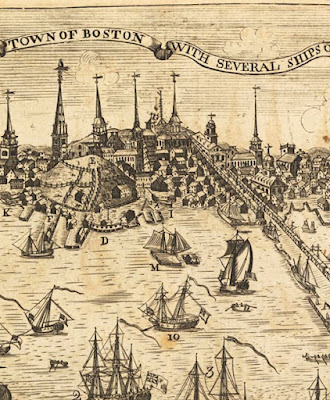


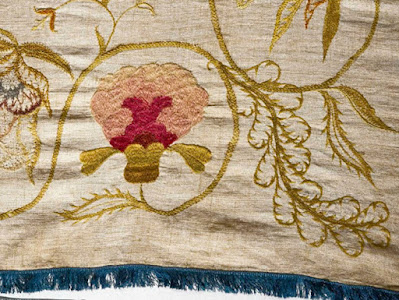
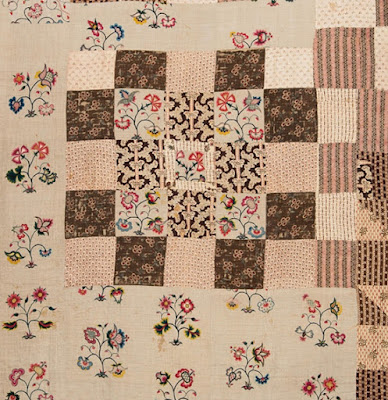

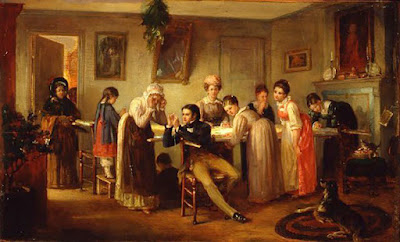
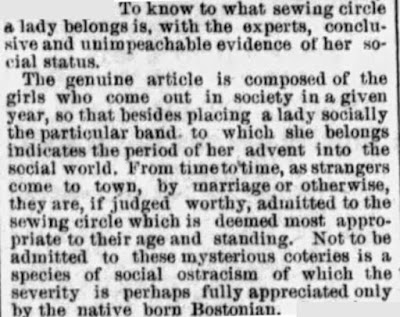




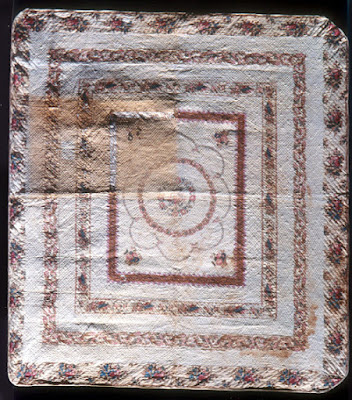

As if the hierarchy of English society had jumped the pond!
ReplyDelete